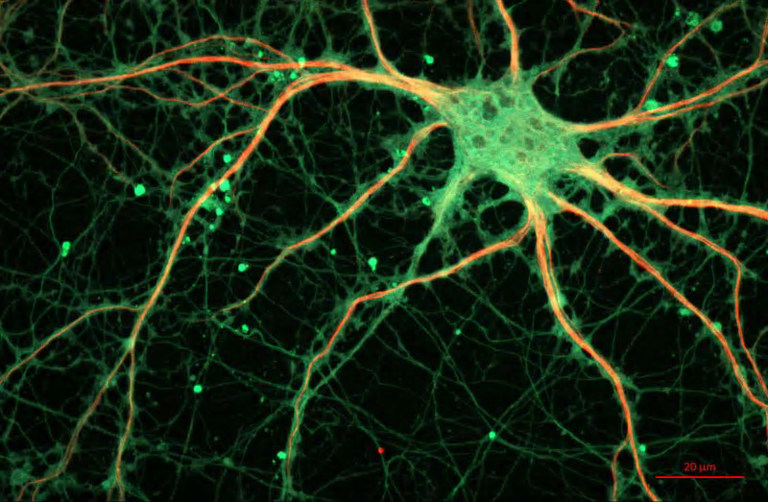Learn about brain health and nootropics to boost brain function
The researchers created brain organoids — brain-like structures grown from human induced pluripotent stem cells — to investigate the effects of LSD at the cellular level. They found that LSD affected several processes, including DNA replication, neural pathfinding, and mTOR signaling.

New research published in Experimental Neurology provides some initial evidence that the psychedelic substance known as LSD has nootropic properties. The study found that LSD increased markers of neuroplasticity in human brain organoids, increased novelty preference in rats, and improved memory performance in humans.
When combined with psychotherapy, psychedelic drugs have shown promise in the treatment of psychiatric conditions such as depression, PTSD, and addiction. But the cellular and molecular mechanisms involved in the therapeutic effects of psychedelics remains unclear.
Some research has indicated that psychedelic substances produce positive impacts, in part, because they promote neurogenesis and neuroplasticity. The authors of the new study were interested in better understanding whether the neuroplasticity induced by psychedelics could be harnessed to enhance learning and memory.
“My main research topics are the neural plasticity mechanisms underlying the cognitive benefits of sleep and dreaming. In the past decade I became interested in psychedelics because they produce dream-like states with major cognitive impacts,” said study author Sidarta Ribeiro, a full professor of neuroscience at the Brain Institute of the Federal University of Rio Grande do Norte
The researchers created brain organoids — brain-like structures grown from human induced pluripotent stem cells — to investigate the effects of LSD at the cellular level. They found that LSD affected several processes, including DNA replication, neural pathfinding, and mTOR signaling.
“The proteomic data from human brain organoids suggest that LSD regulates multiple processes involved in neural plasticity,” the researchers said. “Notably, we found significant LSD-induced changes in the mTOR pathway, a protein kinase involved in multiple neural plasticity events, acting as a hub between plasticity, learning, and memory.”
To examine the effects of LSD on hippocampus-dependent memory processes, the researchers had 76 rats undergo a novel object preference task several days after receiving a dose of LSD or an inert saline solution. Rats who had received LSD tended to spend more time exploring novel objects. But LSD did not appear to affect the overall time spent exploring objects in general.
“Our results show that LSD pre-treatment can substantially increase novelty preference in rats several days after dosing, with a significant single dose effect,” the researchers said. “The results imply that LSD-induced plasticity enhanced novelty-seeking.”
Ribeiro and his research team also investigated the effects of LSD on humans in a randomized, double-blind, placebo-controlled study. In the cross-over study, 25 healthy volunteers who had previously used LSD at least once (but had been abstinent from any psychedelic or other illicit drugs for at least two weeks) received 50 μg of LSD in one session and 50 μg of an inactive placebo in another session. The order of the sessions was randomized.
The morning after dosing, the participants completed a visuospatial 2D object-location task (an assessment of memory consolidation) and a Rey-Osterrieth Complex Figure test (a commonly used neuropsychological assessment of memory encoding and recall in which participants are asked to reproduce a complicated line drawing).
The researchers found that participants tended to have better performance on the memory tests the day after consuming LSD, compared to the day after consuming the placebo. “To our knowledge, this is the first study to show that LSD enhances subacute memory in humans,” the authors wrote in their study. However, they noted that the effects of LSD were not very strong, which might be a result of “the single, relatively low dose applied.”
Together, the findings provide evidence that “even a single dose of LSD can promote neural plasticity and enhance cognition in healthy adults, several days after the LSD administration,” Ribeiro told PsyPost. However, the researcher noted that “we still need to learn more about age differences, potential gender differences and the role of the context (setting) in the modulation of the effects.”
“Psychedelics have been demonized since the 1960s, and in the past decade they have returned to biology and medicine through the front door,” Ribeiro added. “However, the utility of psychedelics is not restricted to the treatment of patients with a pathological condition. They can also be very useful to improve the cognition of healthy individuals, i.e., they should be seen not just as medicine, but also as part of human life at large.”
The study, “Nootropic effects of LSD: Behavioral, molecular and computational evidence“, was authored by Isis M. Ornelasa, Felipe A. Cini, Isabel Wießner, Encarni Marcos, Dráulio B. Araújo,Livia Goto-Silva, Juliana Nascimento, Sergio R. B. Silva, Marcelo N. Costa, Marcelo Falchic, Rodolfo Olivieri, Fernanda Palhano-Fontes, Eduardo Sequerra, Daniel Martins-de-Souza, Amanda Feilding, César Rennó-Costa, Luis Fernando Tófolic, Stevens K. Rehena, and Sidarta Ribeiro.